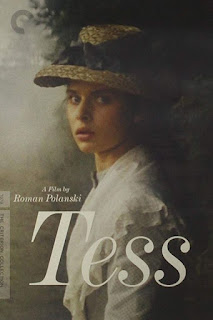FREE ON CINEGEEK.DE Kim-Ki Duk - Spring, Summer, Fall, Winter...And Spring

Rarely has such a simple film moved me so much! Spring, Summer, Fall, Winter is Buddhist, but basically universal. It plays on a house that is fastened on a raft. You think the raft is static, but that's not true. It floats in a secluded lake and symbolizes life, faith, growth, love, jealousy, hatred, cruelty and redemption. And nature. There is also a dog, a cat, a bird, a snake, a turtle and a frog. The small house with only one room is made for a hermit. There lives a monk (Oh Young Soo) with a boy (Seo Jae Kyung) who wants to become a monk. The monk raises the boy, watches over him. He worships a Buddha statue and strikes against a sacred singing bowl. We notice that this daily routine hardly changes. The lake is surrounded by a forest. At one mouth there are two painted wooden gates that open whenever a new season begins. They are gates that do not exclude anyone, anyone can pass them simply by walking around them. The house is exactly the same. The master and his disciple sleep on pallets left and right. At the foot of each sleeping place there are two doors. Anyone can pass these too. You can just walk past them. The monk, when he wakes the boy, uses the door. Other figures in the film, however, will simply run past them. What do we learn? I don't think these doors are symbols. They are lessons. They teach the entrant to respect customs and traditions. Just imagine a person from the western world living on the lake: How would that be for us? We who idealize the customs of the Far East and perhaps even dream of the meditative power of such a life. In truth, however, it would be unhealthy for us. While I was watching Kim Ki-duk's film, I didn't get such thoughts. I got completely involved in the world of film. I was moved by this story, which is so timeless. The Transcendence of Eternity! But in reality it would be quite cold to live on this lake in winter! Kim Ki-duk's film, however, is so beautiful that we accept this lake as the center of all existence. Cruelty is also part of it: Often the master sends his boy to look for herbs. Once the boy ties a string around a fish, on which a stone hangs, so that the fish has trouble swimming. He later repeats this trick with a frog and a snake. He does not know that the master is following him. We don't even know how the master managed to follow the boy (without rowing boat). It is one of the little secrets of the film. One that doesn't really catch the eye at first. When the boy wakes up the next morning, he himself finds a stone tied around his back. The master orders him to go back and free the fish, the snake and the frog. He warns; should one of the animals have died, he must carry the stone in his heart forever. Spring is coming to an end. I don't want to betray any more at this point; only so much that a girl comes to the lake. The boy, who is now a man, falls in love with her. The monk believes that sex is a remedy. But he also warns that lust can promote the pursuit of power, which in turn leads to murder. The monk himself lives in company, because there are always animals around him. A dog, right at the beginning of the film and a cat. The monk feeds the animals. The lake, the forest, the house, they are there for the monk and the boy. And they will still be there after them... Spring, Summer, Fall, Winter was staged by the Korean Kim Ki Duk, who for me belongs to the film art bar Fitzcarraldo. That's because during our opening thirteen years ago the "Korean Wave" was in full bloom. Everyone asked about this director, who makes films as violent as they are poetic: Kim Ki-duk. My colleague at the time was so fascinated by him that he obtained the rights for the Korean's first two films! Something that could be called flowing isolation has to fascinate Kim Ki Duk. In one of his earlier masterpieces it is a fisherman who practices his craft on a lake. Kim Ki Duk isn't a director who has to deliver his message explicitly. In his best movies little, sometimes not at all, is spoken. There are hardly any dialogues or explanations. Kim Ki Duk concentrates on lives that have been going on for so long - until there is a conflict. A misery happens! The main character in Spring, Summer, Fall, Winter is life itself. The opponents are called time and change. To live means to accept these conditions.




























